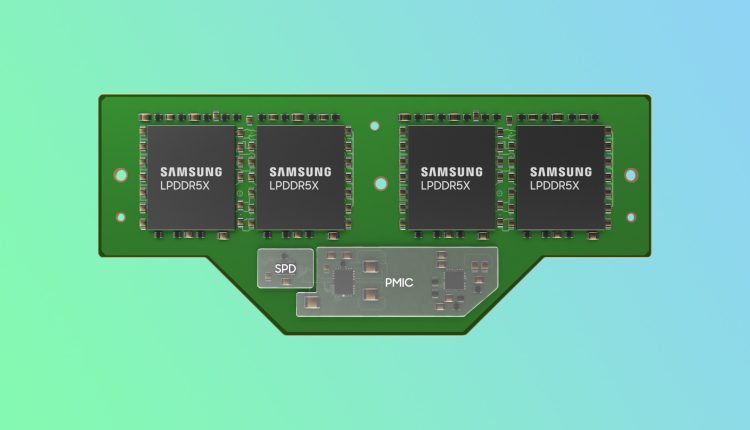©2021 Reporters Post24. All Rights Reserved.
Samsung, the world leader in memory chips, has announced a brand new type of DRAM form factor. The South Korean firm is the world’s first to announce LPCAMM (Low Power Compression Attached Memory Module) form factor for DRAM chips, and they are made for future laptops and PCs. These DRAM modules offer faster performance in a smaller size.
LPCAMM will eventually replace So-DIMM and LPDDR DRAM modules in laptops and PCs. Samsung says that LPCAMM DRAM modules offer up to 50% higher performance and up to 70% higher power efficiency. More importantly, they consume 60% less space on the motherboard. This will allow laptop makers to make even thinner and smaller laptops. Samsung says these DRAM modules can even be used in data centers and servers.
Conventional DRAM modules use So-DIMM modules, which consume a lot of space, or LPDDR that are soldered on the motherboard. LPCAMM memory modules overcome the shortcomings of both LPDDR and So-DIMM. Samsung’s LPCAMM DRAM modules, featuring 7.5Gbps data transfer speeds, have already completed system verification for Intel’s platform. While the 7.5Gbps speed is lower than Samsung’s current-generation LPDDR5X modules with 8.5Gbps speeds, they offer excellent improvements in efficiency and space.
Dr. Dimitrios Ziakas, Vice President of Memory & IO Technology at Intel, said, “The energy efficiency and repairability advantages of LPCAMM make this new form factor a game changer in today’s PC market. We’re excited to be a part of the new standard enabling the client PC ecosystem and pave the path for future adoption and innovation in broader market segments.”
Samsung’s next-generation Galaxy Book laptops, which are expected to be launched in the first half of next year with Intel’s recently announced Meteor Lake processors, may use LPCAMM DRAM modules. If they use these memory modules, we can expect the Galaxy Book 4 lineup to be even thinner and more compact than the Galaxy Book 3 lineup.



